A Hillside garden can be one of the most challenging landscape designs to execute, especially if it is a steep slope, like this Holmes, NY backyard. Why? Steep slopes are more prone to erosion — washing away of precious topsoil — especially during storm events. Furthermore, if the soil structure is high in sand and gravel, stormwater can drain too quickly, making it difficult for the planting to absorb enough water to grow and survive.
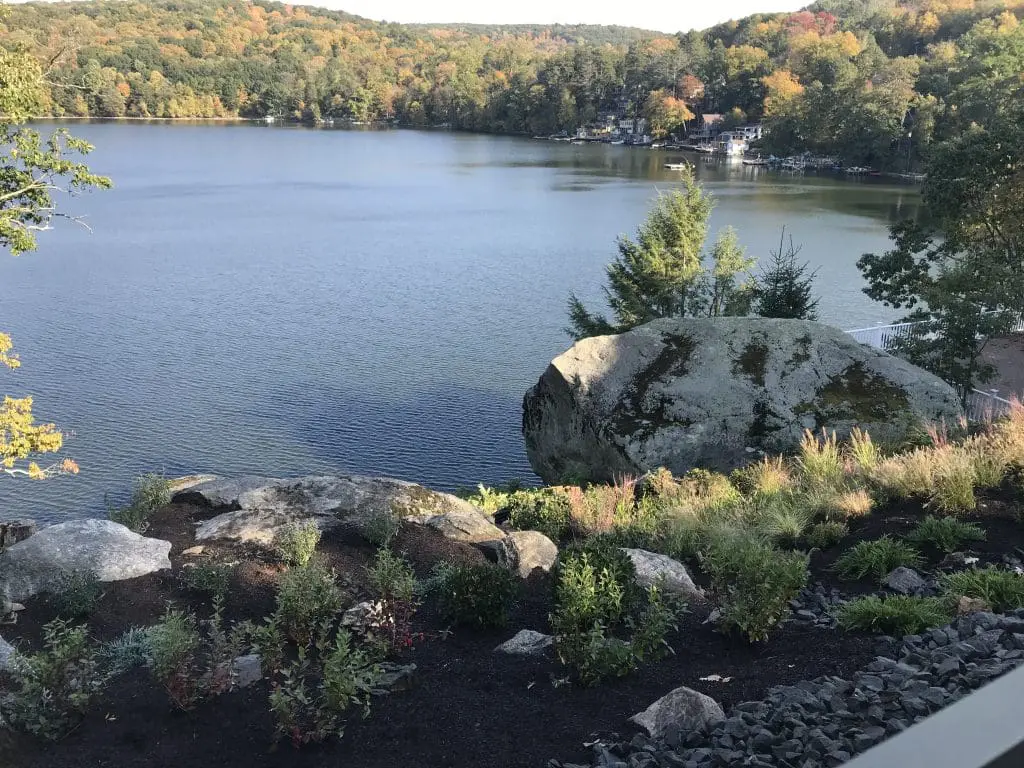
This series is part of our 2020 Countdown of GJLs Best Landscape Design Projects of the Year! This is #5: Lakeside Retreat: A Bird’s Eye View in the Cradle of the Clouds.
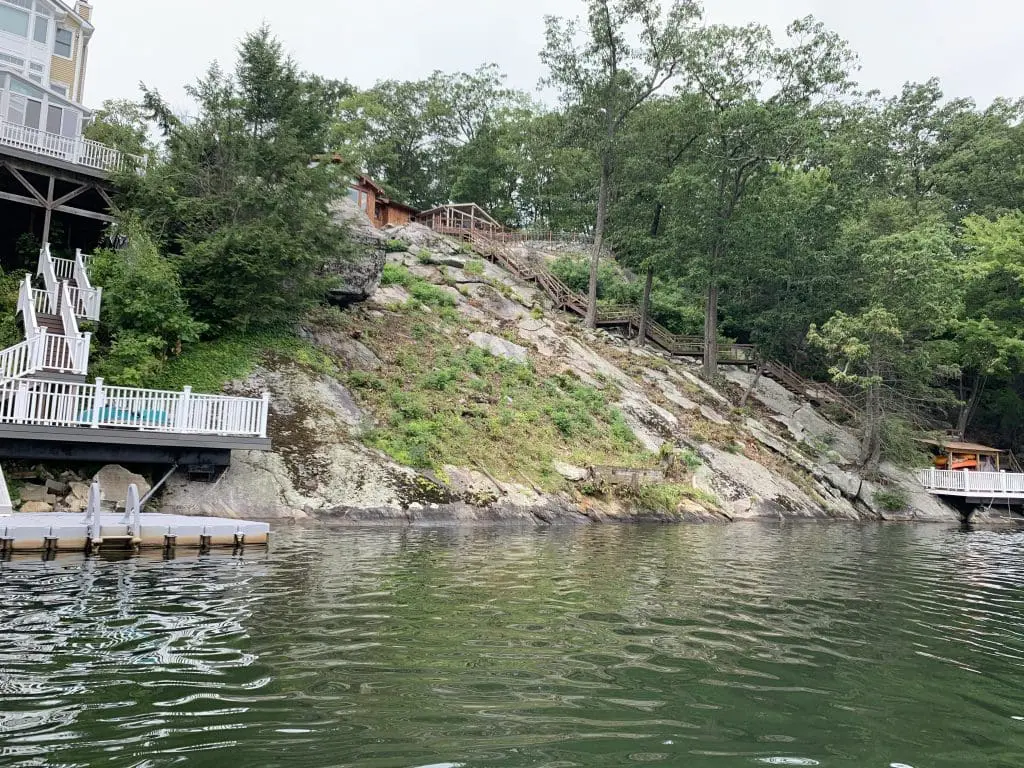
Landscaping a Slope
It is especially important to think about viewpoints when landscaping a slope or hillside. Will the garden be viewed primarily from the top, side or bottom of the slope? A natural slope can actually be a blessing, allowing for a greater range of plants of different heights to be incorporated (no longer are tall plants relegated to the way back!).
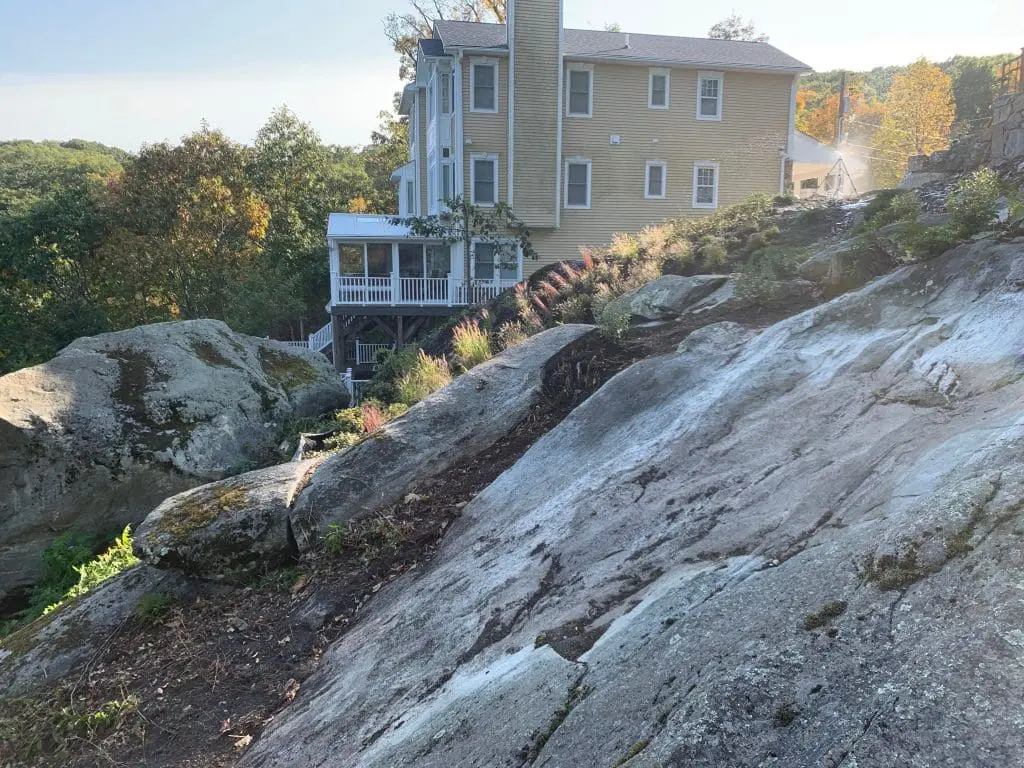
On this Holmes, NY property, the backyard slope is mostly seen from the water (where the client often boats). It is also highly visible from the staircase that leads from the house to the water. Another design goal was to also wanted to accentuate the strong natural features — a rock outcropping that had previously been overtaken by vegetation.
Cohesive Hillside Garden Habitat
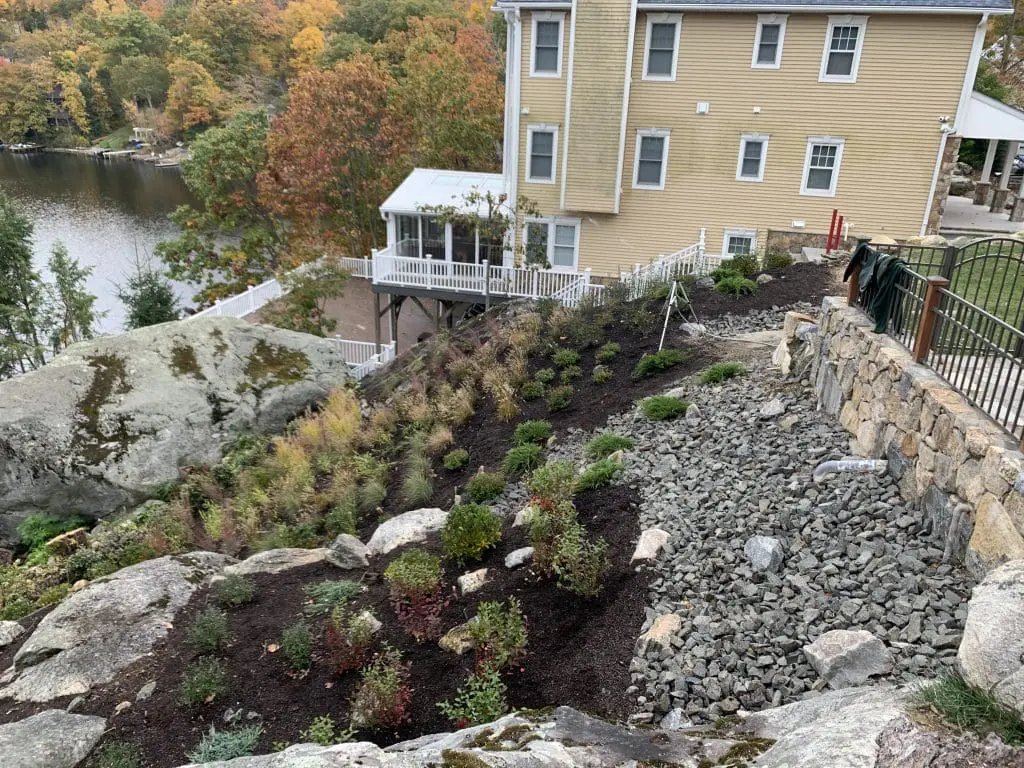
We chose a selection of deep-rooted ornamental grasses, native shrubs, perennials and ground cover for this hillside garden. Deeply rooted plants help stabilize the soil in the newly created garden terraces. We also wanted this garden to be an extension of the natural surrounding habitats — inviting to the birds, pollinators and wildlife of the lake ecosystem.
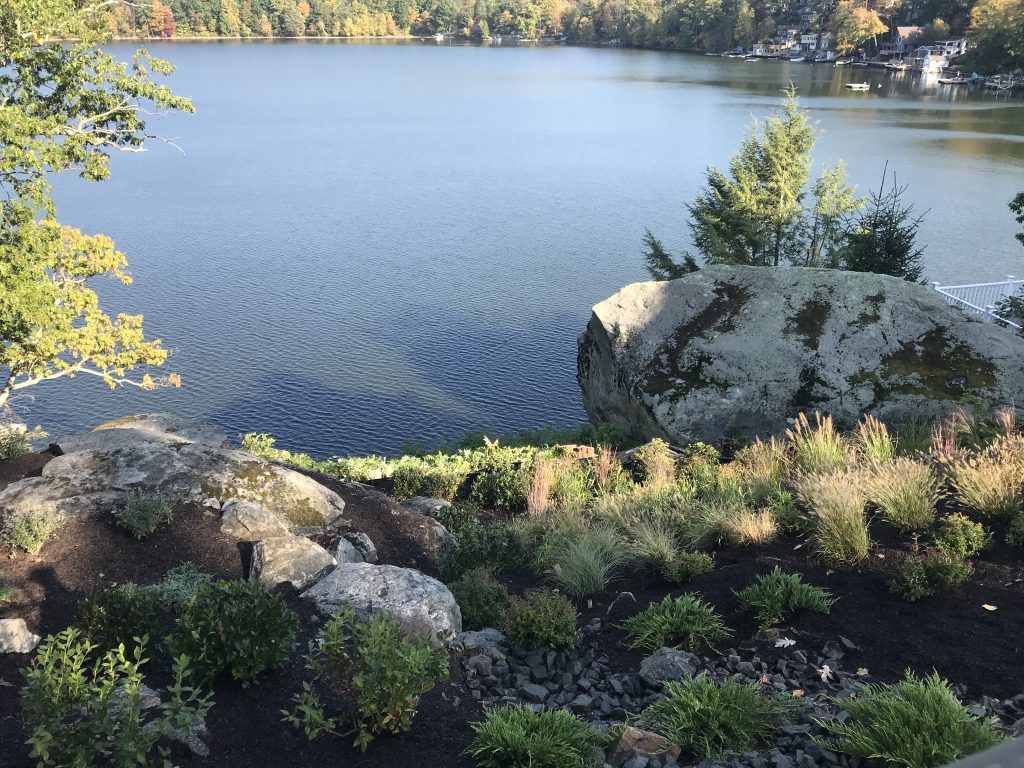
Of course, it was also critically important that the landscape be installed and maintained organically. Traditionally applied landscape chemicals will run directly into the freshwater ecosystem, with disastrous consequences for aquatic life.
Designing a Terraced Garden for Erosion Control
We implemented a number of erosion control devices to make this hillside garden a success. First, we manipulated the grade and constructed terraces. New topsoil (140 yards!) was brought in, and retained with Ultratech Filter Socks. Plantings were installed in erosion blankets for added protection during the establishment phase.

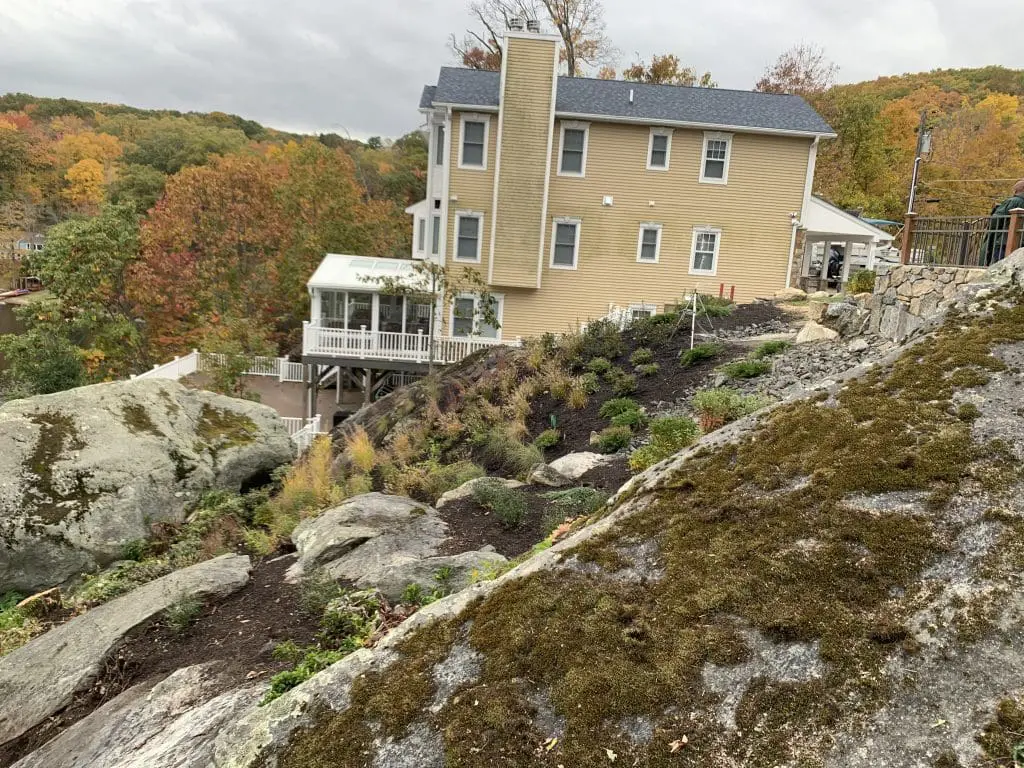
Learn more about the erosion control devices used, and broader ecological issue of erosion, soil loss & sediment loading, as well as the specific plants we chose, on our previous blog: Hillside Stabilization Planting w. Lakefront Views.
Contact us to discuss your landscape design, erosion control or stormwater management project: 914-560-6570.